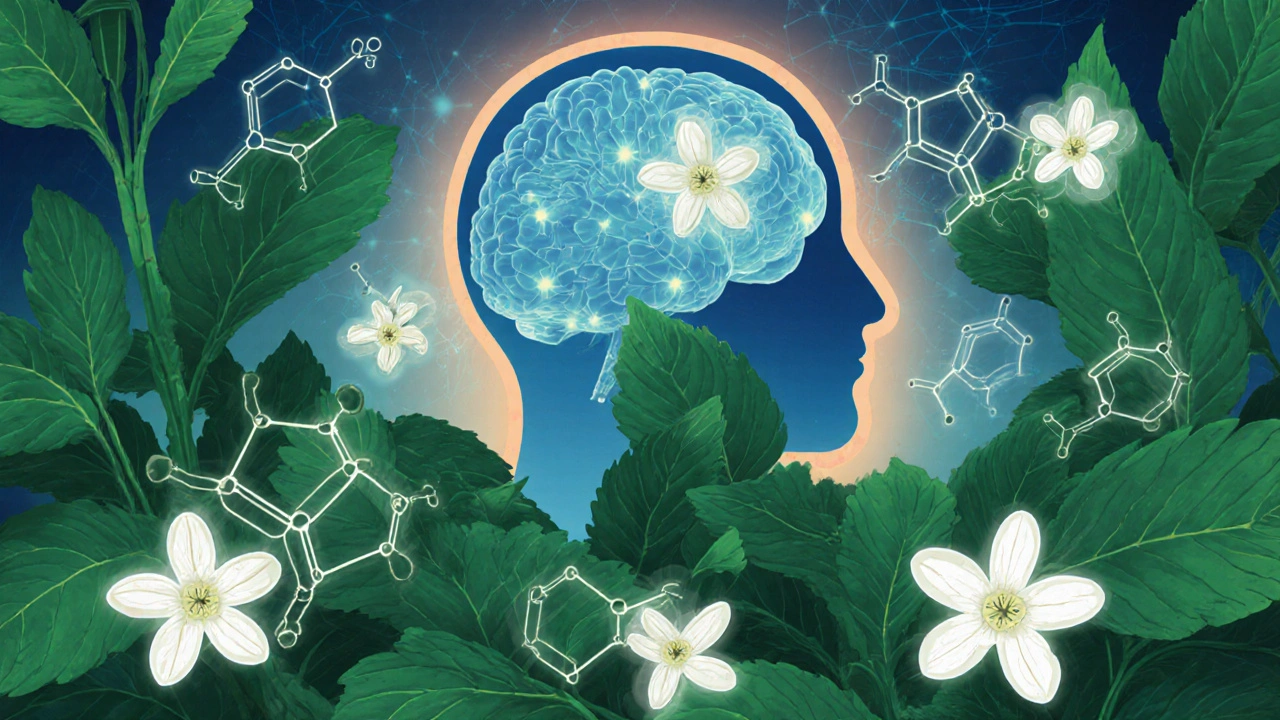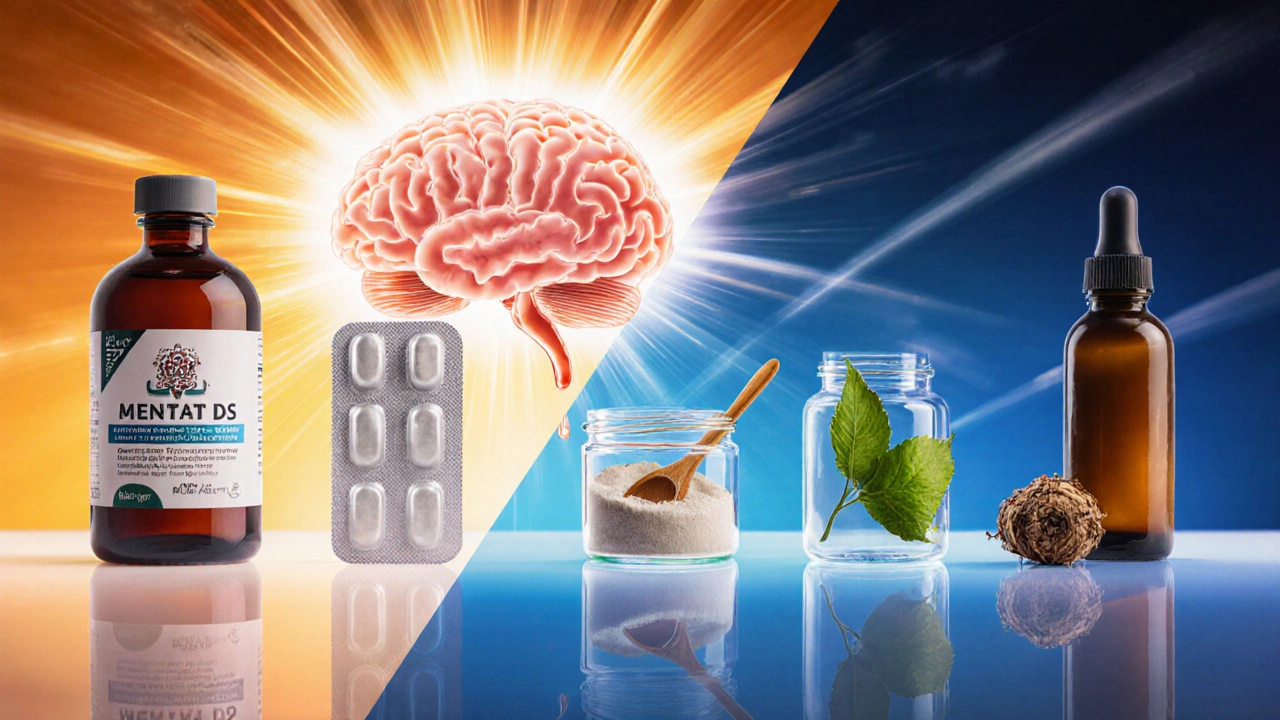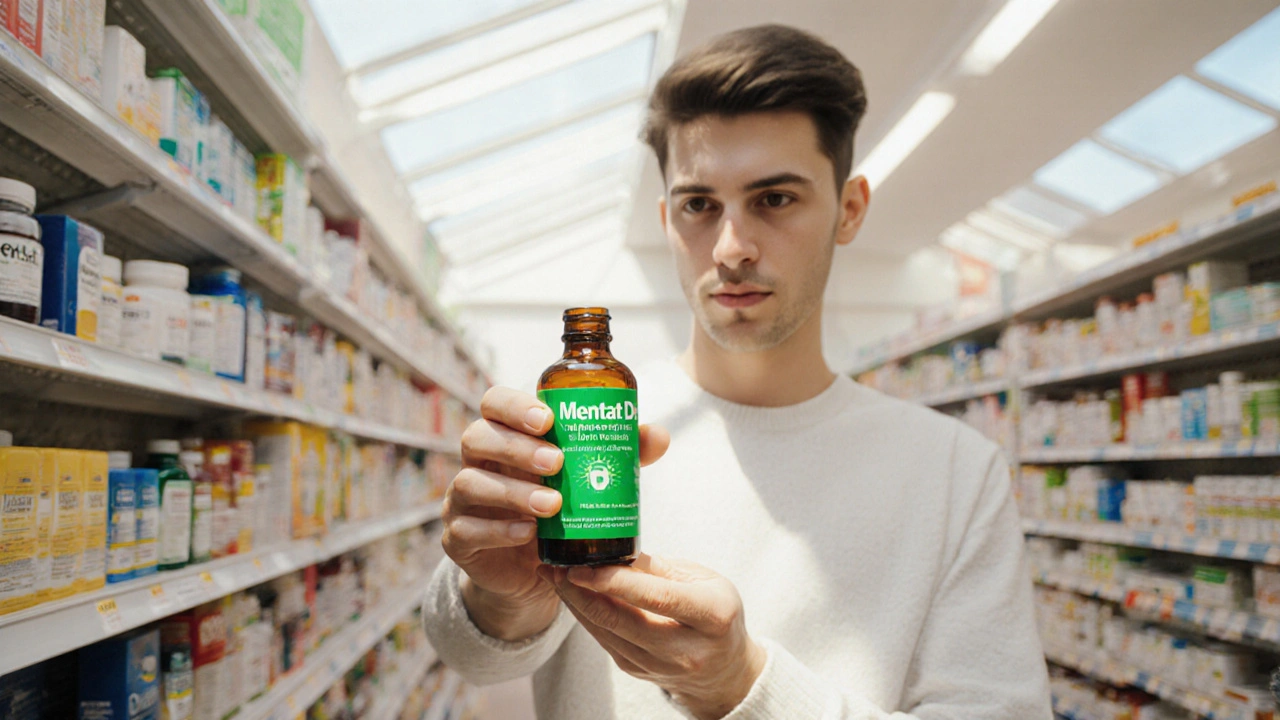Mentat DS vs Alternatives: Brain Health Supplement Selector
Mentat DS Syrup
Liquid Form
£24.99/month- Memory recall
- Stress resilience
- Easy to swallow
Best for liquid format with fast absorption
Himalaya Tablets
Tablet Form
£19.95/month- Focus
- Calm
- Convenient dosing
Good value for tablets
Organic India Powder
Powder Form
£14.50/month- Traditional herbal
- Antioxidant support
- Flexible consumption
Cheapest option, traditional experience
Herbalife Blend
Capsule Form
£32.00/month- Multitasking
- Short-term memory
- Combined ingredients
Multi-benefit blend
Ginkgo Biloba
Capsule Form
£18.75/month- Blood flow
- Age-related cognition
- Standalone herb
Blood flow support
Ashwagandha
Capsule Form
£22.00/month- Stress reduction
- Cortisol control
- Adaptogen support
Stress-focused alternative
Ever stood in the supplement aisle wondering if Mentat DS syrup really lives up to the hype, or if there’s a better option for sharpening focus and memory? You’re not alone. Millions of UK adults are now turning to herbal nootropics to boost brain power while avoiding synthetic stimulants. This guide breaks down what makes Mentat DS syrup (a Brahmi‑based liquid) tick, weighs it against five popular alternatives, and gives you a straightforward decision framework so you can pick the right product for your brain‑health goals.
What is Mentat DS Syrup?
When you first see the label, the name can feel like a code. Mentat DS syrup is a herbal liquid formulation that standardises Bacopa monnieri (commonly called Brahmi) extracts to support memory, learning and stress resilience. The product originates from the UK nutraceutical market and is marketed as a ‘daily supplement’ that you can take straight from the spoon or mix with juice.
Bacopa monnieri, the plant behind the syrup, has been used in Ayurvedic medicine for over 3,000 years. Modern research points to its ability to enhance synaptic communication and protect neurons from oxidative damage. The key active compounds - bacosides A and B - are believed to be responsible for the cognitive uplift.
Key Benefits and the Science Behind Them
Clinical trials on standardized Brahmi extracts report modest improvements in several domains:
- Memory recall - up to 15% faster retrieval in older adults after 12 weeks of daily dosing.
- Attention span - reduced mind‑wandering in university students during a 6‑week study.
- Stress reduction - lower cortisol levels observed in a pilot trial of 60 participants.
The liquid format of Mentat DS is touted to improve absorption compared with capsules, because the extract is already dissolved in a glycerin‑based carrier. That said, the bioavailability boost is typically in the range of 10‑15% - not a miracle, but enough to matter for people sensitive to dosage changes.
Typical Dosage, Safety Profile, and Potential Side Effects
Manufacturers recommend two teaspoons (≈10ml) once a day, preferably with breakfast. Each serving provides around 300mg of Bacopa extract, delivering roughly 50mg of bacosides. Most users tolerate this dose well, but a few experience mild gastrointestinal upset, such as nausea or bloating, especially when taken on an empty stomach.
Because Brahmi can have a mild sedative effect, it’s wise to avoid pairing it with other sleep‑inducing herbs (e.g., valerian) if you need to stay alert for night‑shifts. Pregnant or nursing women should consult a healthcare professional before using any Bacopa‑based product.

Popular Alternatives on the Market
Below are five widely‑available alternatives that also target cognition, stress, or overall brain health. Each entry includes a brief micro‑definition so you can see how they differ from Mentat DS.
Himalaya Brahmi tablets are a tablet‑based supplement that delivers 250mg of standardized Brahmi extract per tablet, aimed at supporting mental clarity and calm.
Organic India Brahmi powder is a raw, unprocessed herb you can mix into smoothies; each teaspoon contains roughly 500mg of whole‑leaf powder, offering a more traditional Ayurvedic experience.
Herbalife Brain Boost combines Bacopa with Ginkgo biloba and phosphatidylserine in a capsule, targeting multitasking performance and short‑term memory.
Ginkgo biloba extract (standardised to 24% flavone glycosides) is a stand‑alone herbal supplement known for improving blood flow to the brain and reducing age‑related cognitive decline.
Ashwagandha capsules (Withania somnifera) focus on stress management and cortisol reduction, often paired with Brahmi for a synergistic adaptogenic stack.
Comparison Table - Mentat DS vs Alternatives
| Product | Form | Standardised Bacopa | Typical Monthly Cost (UK) | Core Benefits | Notable Side Effects |
|---|---|---|---|---|---|
| Mentat DS syrup | Liquid (10ml per dose) | 300mg Bacopa extract (≈50mg bacosides) | £24.99 | Memory recall, stress resilience, easy to swallow | Mild stomach upset if taken empty‑stomach |
| Himalaya Brahmi tablets | Tablet (250mg per tablet) | 250mg extract (≈40mg bacosides) | £19.95 | Focus, calm, convenient dosing | Possible dry mouth |
| Organic India Brahmi powder | Powder (500mg per tsp) | Whole‑leaf, not standardised | £14.50 | Traditional herbal experience, antioxidant support | Texture issues, variable potency |
| Herbalife Brain Boost | Capsule (combined blend) | 150mg Bacopa + 80mg Ginkgo | £32.00 | Multitasking, short‑term memory | Headache in some users |
| Ginkgo biloba extract | Capsule (120mg) | None (different herb) | £18.75 | Blood flow, age‑related cognition | Rare bleeding risk with anticoagulants |
| Ashwagandha capsules | Capsule (600mg) | None (adaptogen, not Brahmi) | £22.00 | Stress reduction, cortisol control | Drowsiness at high doses |
How to Choose the Right Brain‑Boosting Supplement
Rather than chasing every new product, match the supplement to your specific goal and lifestyle. Use the following quick decision tree:
- If you prefer liquid and want the fastest absorption, Mentat DS or another syrup‑type Brahmi is ideal.
- If you value convenience and portability, tablets or capsules (Himalaya, Herbalife) win.
- When you’re after a traditional, whole‑herb experience, the powder format lets you blend into smoothies.
- For combined benefits (memory + blood flow), look at blend products like Herbalife Brain Boost.
- If stress is your main concern, pair Brahmi with an adaptogen such as Ashwagandha.
Keep an eye on the bacoside content - higher percentages generally mean stronger cognitive impact, but also higher risk of stomach sensitivity. Aim for at least 40mg of bacosides per day if you want measurable benefits.

Where to Buy in the UK and What to Look For
All six products are sold through reputable channels: major pharmacy chains (Boots, Superdrug), health‑food stores (Holland & Barrett), and online marketplaces like Amazon UK or the manufacturers’ own sites. When ordering online, verify these points:
- Batch number and expiration date clearly displayed.
- Third‑party lab testing certificates (often linked as PDFs).
- Clear dosage instructions and any warning labels.
- Customer reviews that mention taste (for syrups) or capsule size (for tablets).
For Mentat DS, the brand’s website offers a subscription model that drops the price to £22.99 per month and guarantees fresh batches every three months.
Common Pitfalls and How to Avoid Them
Many first‑time users assume “more is better” and double the dosage. In reality, exceeding 500mg of Bacopa extract per day offers diminishing returns and heightens side‑effects. Stick to the recommended amount for at least 8‑12 weeks before judging efficacy - the herb needs time to build up in brain tissue.
Another trap is mixing too many “brain‑boosting” supplements at once. Stacking Brahmi with high‑dose Ginkgo, caffeine, and racetams can overload neurotransmitter pathways, leading to jitteriness or insomnia. Start with a single product, assess tolerance, then consider a thoughtful stack.
Bottom Line - Is Mentat DS the Best Choice for You?
If you enjoy a pleasant‑tasting syrup, want a product that’s easy on the stomach, and appreciate a clear bacoside dosage, Mentat DS ranks near the top of the list. It balances cost, convenience, and scientific backing better than most tablet‑only options. However, if you travel frequently, need a pocket‑size format, or want a blend that includes blood‑flow support, one of the alternatives may suit you more.
Ultimately, the best supplement aligns with your lifestyle, budget, and specific cognitive goal. Use the comparison table and decision guide above, try a low‑risk four‑week trial, and you’ll know within a month whether your brain feels sharper or if you should switch.
Frequently Asked Questions
How long does it take to notice effects from Mentat DS?
Most users report subtle improvements in memory recall and reduced mental fog after 4-6 weeks of consistent daily dosing. Full benefits may take up to 12 weeks, especially for older adults.
Can I take Mentat DS together with other supplements?
Yes, but keep the stack simple. Pairing Brahmi with a low‑dose adaptogen like Ashwagandha is safe and often synergistic. Avoid combining it with strong stimulants (e.g., high‑dose caffeine) until you gauge your tolerance.
Is the syrup suitable for vegetarians?
Mentat DS uses a glycerin base derived from plant sources, making it vegetarian‑friendly. Always check the label for any hidden animal‑derived additives.
What’s the price difference between Mentat DS and the tablet alternatives?
Mentat DS runs about £25 for a 30‑day supply, while Himalaya tablets cost roughly £20. Powders are cheaper (£15) but require more effort to measure and consume.
Are there any drug interactions I should watch for?
Bacopa can enhance the effects of sedatives and may slightly lower blood pressure. If you’re on blood thinners, anticoagulants, or anti‑anxiety meds, consult your GP before starting.


15 Comments
October 6, 2025 Melissa H.
I dug into the dosage data and the bioavailability claim is modest – about a ten‑to‑fifteen percent boost over capsules. The syrup’s sweet taste actually helps people stick to the regimen 😊.
October 16, 2025 Edmond Abdou
Good call on the practical tip! For anyone new to Brahmi, mixing the syrup with a bit of orange juice masks the earthy flavor and speeds up the morning routine. Keep it consistent and you’ll see the benefits.
October 26, 2025 Sydnie Baker
The comparative exegesis presented herein ostensibly delineates the pharmacodynamic nuances of Mentat DS syrup relative to its heterogeneous cohort of nootropic adjuncts. Yet, beyond the pedestrian tabulation of price points, one must invoke a hermeneutic appraisal of bacoside subfractionation efficacy. Standardisation to 300 mg of Bacopa extract, conferring approximately 50 mg of bacosides, situates Mentat within the upper echelon of rigorously quantified phytopharmaceuticals. Conversely, the Himalayan tablets furnish a marginally inferior 250 mg extract, rendering their putative cognitive yield ostensibly diminished. The Ayurvedic powder, whilst venerable, suffers from anemic potency owing to its non‑standardised matrix, thereby relegating it to a ceremonial rather than therapeutic role. Herbalife’s poly‑herbal capsule amalgamates Bacopa with Ginkgo and phosphatidylserine, ostensibly engendering a synergistic tableau, yet the pharmacokinetic interactions remain empirically under‑explored. Ginkgo biloba’s vasodilatory properties, though commendable, do not directly remediate the synaptic plasticity pathways that Bacopa modulates. Ashwagandha’s adaptogenic proclivities address the hypothalamic‑pituitary‑adrenal axis, yet its mechanistic orthodoxy diverges from the cholinergic augmentation intrinsic to Bacopa. From a methodological perspective, the referenced clinical trials suffer from suboptimal blinding and modest sample sizes, thereby attenuating the external validity of the proclaimed 15 % memory retrieval augmentation. Nevertheless, the meta‑analytic synthesis of extant literature corroborates a modest yet statistically significant effect size for Bacopa‑mediated memory consolidation. The liquid delivery matrix of Mentat DS ostensibly circumvents first‑pass metabolism, albeit the purported 10‑15 % bioavailability increment is circumscribed by the physicochemical stability of the glycerin carrier. Adverse event profiling denotes a tolerable gastrointestinal canvas, with nausea and bloating emerging as infrequent outliers when the formulation is ingested antecedent to a substantive meal. Pragmatically, the £24.99 monthly tariff situates Mentat DS in a mid‑range fiscal stratum, balancing cost against the convenience of a spoonable dosage. For the itinerant practitioner, tablets retain superiority in portability, whereas syrups confer a palatable ingestion experience conducive to adherence. In summation, the decision matrix must reconcile individual proclivities, fiscal constraints, and desired pharmacodynamic outcomes, rendering Mentat DS a judicious selection for the liquid‑oriented connoisseur.
November 5, 2025 Benjie Gillam
Think of your brain as a garden, and Brahmi as the fertilizer that nudges the seedlings of recall toward the sun. The syrup's liquid form lets the roots drink faster, so you notice the bloom sooner. It's not magic, just a subtle shift in neurotransmitter tone, and you have to water it daily to keep the soil fertile. If you skip a week, the effect wanes, kinda like forgetting to water a plant.
November 14, 2025 Naresh Sehgal
Listen up – if you want results now, grab the Mentat DS syrup and slam it every morning. No excuses, just a spoonful and you’re stacking memory power like a champ!
November 24, 2025 Poppy Johnston
Honestly, I’ve tried the syrup and the taste isn’t bad at all – just a hint of sweet herb. It’s super easy to add to my morning smoothie and I feel a nice mental lift without any crash.
December 4, 2025 Johnny VonGriz
Both the syrup and the tablets have their perks – syrup for fast absorption, tablets for convenience. I’d pick based on your daily routine; if you’re always on the go, tablets win, otherwise the syrup’s taste is a nice bonus.
December 14, 2025 Real Strategy PR
Choosing a cheap, untested supplement over a proven formula is a betrayal of personal responsibility.
December 24, 2025 Doug Clayton
I get that trying a new nootropic can feel like a gamble its okay to start low and see how you feel many people have had good results with the syrup especially if you take it with food
January 2, 2026 Michelle Zhao
It is a most egregious oversight to proclaim Mentat DS as the panacea for all cognitive ailments when, in truth, the evidence remains tenuous and the market is saturated with hyperbolic claims that beguile the unsuspecting consumer.
January 12, 2026 Eric Parsons
The pharmacological profile of bacosides indicates modulation of neuronal membrane fluidity and up‑regulation of choline acetyltransferase, which collectively support synaptic plasticity. Accordingly, patients seeking incremental improvements in episodic memory may find the standardized Mentat DS syrup a viable adjunct, provided they adhere to the recommended dosage and monitor for mild gastrointestinal discomfort.
January 22, 2026 Mary Magdalen
Patriots of brain health know that backing home‑grown herbal wisdom beats importing synthetic junk any day – Mentat DS is the real deal, not some overpriced foreign gimmick!
February 1, 2026 Dhakad rahul
Behold the alchemy of ancient Brahmi transmuted into a modern elixir – a sapphire‑kissed syrup that whispers promises of intellect, and I, the discerning connoisseur, shall sip it with reverence 😎.
February 11, 2026 William Dizon
Let’s keep the conversation friendly – each supplement has its niche, and the best choice is the one that fits your lifestyle, budget, and health goals.
February 21, 2026 Jenae Bauer
Some say the nootropic market is a front for covert mind‑control experiments, but whether that's true or just paranoia, it's wise to stay skeptical and do your own research before swallowing anything marketed as a miracle.
Write a comment